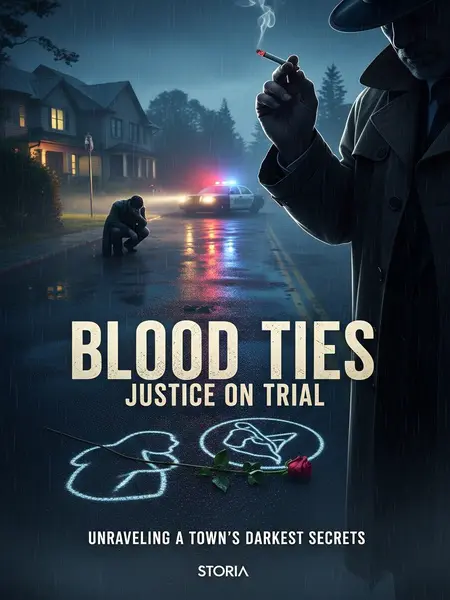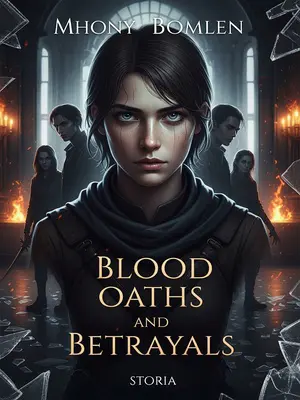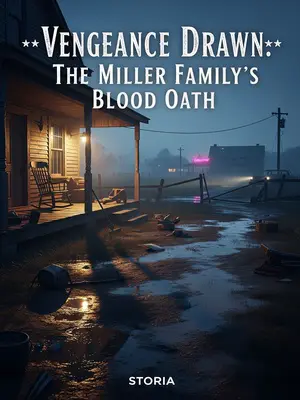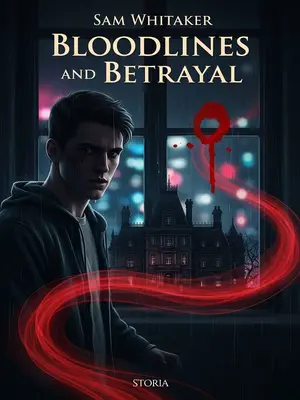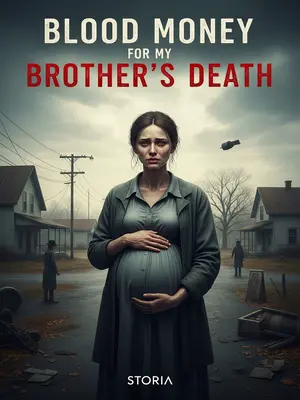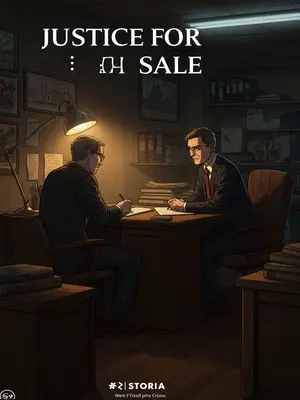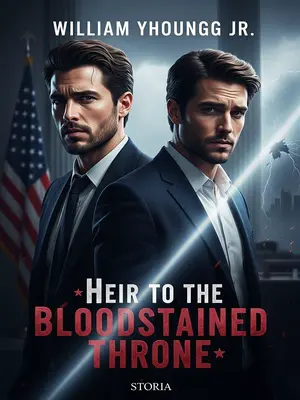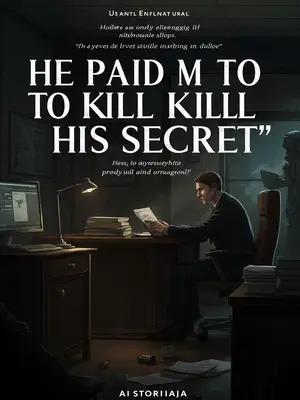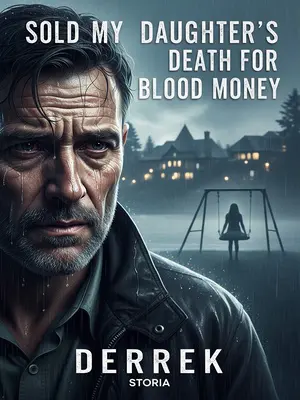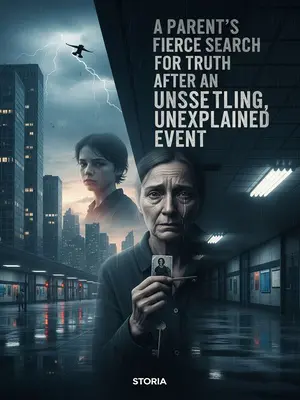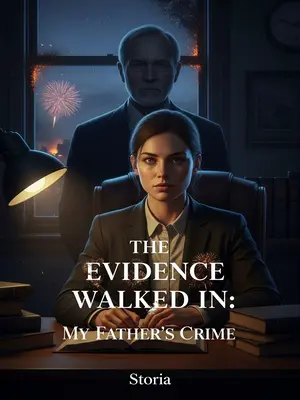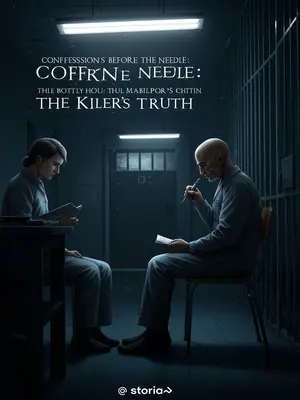Chapter 3: A Confession Without Remorse
He collapsed on the sidewalk, knees buckling, snot running down his face. "Please, I didn’t do anything!" he wailed, voice echoing down the empty street. It was a pitiful sight, but no one felt sorry for him.
Back then, patrol cars didn’t have built-in cameras, and everyone in the car had been at the crime scene earlier that evening. No one knows exactly what happened in transit, but we can all vouch that nothing improper occurred.
We kept our hands visible, our voices calm. The ride was silent except for Tyler’s sobbing. When we pulled into the station, we logged everything by the book, knowing full well that every step would be scrutinized later.
Upon returning to the detective bureau, Captain Harris instructed us to handle the case overnight. He coordinated with other departments to work overtime and ensure the evidence chain was airtight.
Harris was a stickler for protocol, and tonight he was working like a man possessed. He made calls, shuffled paperwork, and barked orders. Everyone in the building knew this case was top priority—no mistakes, no loose ends.
We all knew this was to prevent Charles Whitman, with his local influence, from interfering in the case.
There were rumors that Charles had friends in high places—judges, councilmen, maybe even the mayor. Harris wanted everything locked down before anyone could make a call or pull a string.
We immediately collected Tyler Whitman’s hair and fingerprints for comparison.
He sat in the processing room, hands shaking, eyes darting around. We took swabs, clipped a bit of hair, rolled his fingers in ink. He tried to protest, but no one listened.
The fingerprint results came back quickly—they matched those found at the scene.
The print tech gave us a nod from behind the glass. It was an open-and-shut case—Tyler’s prints were all over the Grady apartment. The case was starting to come together.
DNA analysis would take longer in those days.
Back then, the lab was understaffed, and the machines were old. We knew it would be days before we got the final results, but the preliminary evidence was overwhelming.
That night, Captain Harris and I interrogated the suspect.
The interrogation room was cold, the fluorescent lights buzzing overhead. Tyler slumped in his chair, face streaked with tears, hands cuffed to the table. Harris sat across from him, voice low but firm.
At first, Tyler was crying, demanding to see his father, claiming he’d been beaten, accusing us of forcing a confession, insisting on his innocence, and that we’d arrested the wrong person.
He alternated between rage and panic, sometimes shouting, sometimes begging. "You can’t do this! I want my dad!" he screamed. Then, "You’re framing me! I didn’t touch anyone!" The performance was almost convincing—almost.
There wasn’t a hint of remorse.
He looked at us like we were the villains, like he was the victim here. Not once did he ask about the victims, not once did he show any sign of regret.
We placed the surveillance footage and fingerprint results in front of him and shouted:
“If you confess now, there’s still a chance for leniency. If you keep denying it, you won’t even get to see your father before you die.”
Harris’s voice was steel. The evidence was damning—a grainy image of Tyler entering the building, a printout of his fingerprints, side by side with those from the scene. The room felt smaller, the air thicker.
At that, Tyler realized the gravity of his situation.
His bravado crumbled. He stared at the table. Lips trembling, breathing hard. For a moment, he looked like a scared kid, but the weight of his actions hung in the air.
Of course, his confession wasn’t strictly necessary—the evidence alone was enough for conviction.
We had everything we needed, but a confession would close the loop, answer the questions that still gnawed at us. We wanted to know why—if only to try to make sense of the senseless.
But we still needed to clarify the full circumstances.
We needed the details: Did he know Lillian? Was this random or targeted? Had he planned it? The answers mattered, not just for the case, but for the family left behind.
For example, did he know Lillian? Why did he choose her as his target?
We pressed him, gently at first, then harder. "Did you know her? Had you ever been in that apartment before? Why her? Why that day?" The questions tumbled out, one after another.
After all, there was a baby at home.
It made no sense—why target a woman with a child? Most guys who do this kind of thing steer clear of places with kids. We needed to know if there was something more, something we’d missed.
Typically, in cases of sexual assault, the victims are women living alone.
It was a pattern we’d seen before—single women, predictable routines. Lillian didn’t fit the mold, and that unsettled us.
If this was just a burglary and rape, why kill the woman? And why go after the baby like that?
It was overkill, pure and simple. The brutality suggested rage, but Tyler didn’t seem angry—just detached. It was as if he’d switched off some part of himself.
Tyler’s account made me question the very nature of humanity.
I’d heard confessions before, but nothing like this. There was a coldness to his words, a lack of empathy that sent a chill down my spine. I found myself gripping the edge of the table, knuckles white.
According to his confession, he had no prior connection to the victims.
He shrugged, eyes unfocused. "Never met her before," he muttered. "Didn’t know her name until you told me."
At noon on the day of the crime, Tyler—having just woken up and heading to a gaming café—encountered Lillian and her daughter returning from grocery shopping.
He said he was on his way to the local gaming café—one of those dark, noisy arcades where kids spent hours glued to screens. He saw Lillian struggling with bags, Savannah fussing in her stroller.
At twenty-five, Lillian was still young and attractive.
She had that fresh-faced look, hair pulled back in a ponytail, jeans and a t-shirt. Tyler’s gaze lingered on her as she passed.
Tyler said he was aroused at the time.
He looked away as he said it, but his voice was flat. "She was hot," he mumbled. "I just wanted to see what it was like with a young housewife."
“Wanted to see what a young housewife was like.”
Those words hung in the air, ugly and raw. I felt my stomach twist.
Those were his exact words.
I wrote them down in my notebook, hand shaking. It felt obscene to record them, but it was necessary.
He pretended to be interested in little Savannah and approached to play with the child.
He crouched down, smiled at the baby, made silly faces. Lillian smiled back. She was probably grateful for a moment’s distraction. Tyler chatted about kids, asked how old Savannah was.
First-time parents often let their guard down around people who show affection for their child, especially in a small town where strangers are rare.
